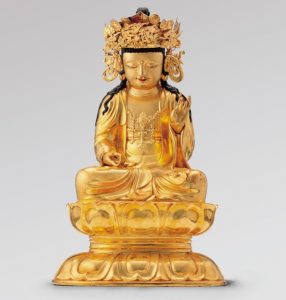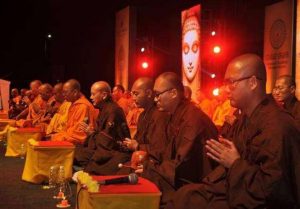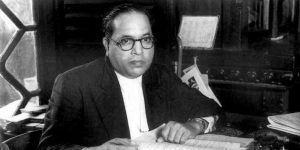
You sit down to meditate and you engage in mettā practice. You develop feelings of goodwill toward others and seek to establish a mind free of ill will. As you complete your meditation, you dedicate your merit so that all beings may be free of suffering. You might wonder, if you already generated thoughts of goodwill toward others, whether sending merit is an unnecessary extra? Mettā and merit work together. You might find it helpful to think of them as part of the same system
Some translate mettā as loving-kindness; others prefer the phrase goodwill. For our discussion, let’s think of it as the ability to direct well-wishes to others. To sincerely want others to be well and happy. Merit is a force that comes from the good deeds you have done, assuming that you committed those good deeds with the right intention. It is bound to our kamma. Our actions, past and present, shape our experience in this life and in the next. To practice good deeds with the right intention requires a mind free of ill will.
Mettā allows you to behave in a way that supports the creation of merit. As you move forward with your mettā practice, you can direct well-wishes to an expanding circle of beings. So that when you say, “May all beings be happy and free from suffering.” You mean all beings. Difficult friends, family, and coworkers included. And now, you have created or added to your merit store. This passage from the Itivuttaka sheds some light on mettā and merit together:
Train in acts of merit
that bring long-lasting bliss—
develop giving,
a life in tune,
a mind of goodwill.
Developing these
three things
that bring about bliss,
the wise reappear
in a world of bliss
unalloyed.
(Iti 1.22)
A mind of goodwill is an important component of merit. As taught in the Pãli canon, merit comes from three sources, generosity (dāna), virtue (sīla), and mental development (bhāvana). Mettā-bhāvana is not the only way that you collect merit, in fact of the 10 ways to generate merit, dāna is the most significant. But mettā makes it possible for you to become capable of creating merit and of benefiting from merit that you have earned in past lives.
This passage from Metta: The Philosophy and Practice of Universal Love by Acharya Buddharakkhita explains the critical role that mettā plays in helping us receive the power of our merit:
When one projects this total wish for others to dwell happily, free from hostility, affliction and distress, not only does one elevate oneself to a level where true happiness prevails, but one sets in motion powerful vibrations conducing to happiness, cooling off enmity, relieving affliction and distress.
(Buddharakkhita 1989)
Mettā has been identified as that specific factor which “ripens” the accumulated merit (puñña) acquired by the 10 ways for the acquisition of merit (dasapunna-kiriyavatthu), such as the practice of generosity, virtue, and so on. Again, it is mettā which brings to maturity the 10 exalted spiritual qualities known as “perfections” (pāramitā).
The human mind is like a mine holding an inexhaustible storehouse of spiritual power and insight. This immense inner potential of merit can be fully exploited only by the practice of mettā, as is clear from the description of mettā as that “maturing force” which ripens the dormant merits. In the Maṅgala Sutta, it is said that only after one has effected an elevating interpersonal relationship (by resorting to good company, and so on) does one choose the right environment for the merits of the past to find fruition. This finding of fruition is exactly what mettā does. Mere avoidance of wrong company and living in a cultured environment is not enough; the mind must be cultivated by mettā. Hence the allusion to the fruition of past merit.

At this point, you might be wondering, what does this have to do with Death Dhamma? Merit earned in this life follows you to the next. Consider the final statement in this passage from the Saṃyutta Nikāya:
Grain, wealth, silver, gold,
or whatever other belongings you have;
slaves, servants, errand-runners,
& any dependents:
you must go without taking
any of them;
you must leave
all of them
behind.
What you do
with body, speech, or mind:
that is yours;
taking
that you go;
that’s
your follower,
like a shadow
that never leaves.
Thus you should do what is fine
as a stash for the next life.
Acts of merit
are the support for beings
in their after-death world. (SN 3.20)
Not only does your merit help you, but you can also use it to help your deceased loved ones. You can transfer the merit you earn. We use mettā, sending well-wishes to other living beings, and when we can develop this state of goodwill toward others, we ripen the merit we have been carrying, and we are more likely to behave in ways that will add to our merit store. We can then dedicate our merit to our deceased family. We cannot do anything about the fact that they have died. We cannot control if they are reborn or when or where they are reborn. We can send them merit and, if the conditions are right, your merit will benefit them. When you can channel the energy of your grief into doing good deeds for others or sending your compassionate thoughts to others, you are creating positive energy, and the deceased may benefit from that energy.
Take note of this qualifier: “if the conditions are right.” The Janussonin Sutta discusses offerings to the dead. Janussonin is a Brahmin who asks the Buddha about the conditions under which the dead may receive gifts from the living. Merit is the gift. The Buddha teaches Janussonin that merit only reaches those who are in what he refers to as the possible places, but not those who are in the impossible places. The list of impossible places includes the hell realm, the animal realm, the human realm, and the deva world. The possible place? The realm of hungry ghosts. Your merit reaches your dead family members who have become hungry ghosts.
With more impossible places than possible places, Janussonin wonders what will happen if none of his ancestors are hungry ghosts? The Buddha assures Janussonin that it is likely that there will be an ancestor on hand to receive the merit. In the rare instance that there is not, the donor still receives the benefits that come from seeking to transfer merit to others. In fact, the sutta goes on to discuss how one who otherwise would have a less than desirable rebirth can avoid landing in one of the impossible places. The response is generosity. Generosity in this life creates merit. Transferring or dedicating your merit to others is an act of giving that helps you, and possibly your ancestors. And you are inspired to give when you are free of animosity, when you have a mind of goodwill.
References
Buddharakkhita, Acariya. 1989. Metta: The Philosophy and Practice of Universal Love. Kandy: Buddhist Publication Society.
See more
Margaret Meloni: Death Dhamma
The Death Dhamma Podcast (Margaret Meloni)
Related features from Buddhistdoor Global
The Dakini at the Bus Stop
Concerning Right Action and Right Livelihood
Baby Steps on the Path of Purity












